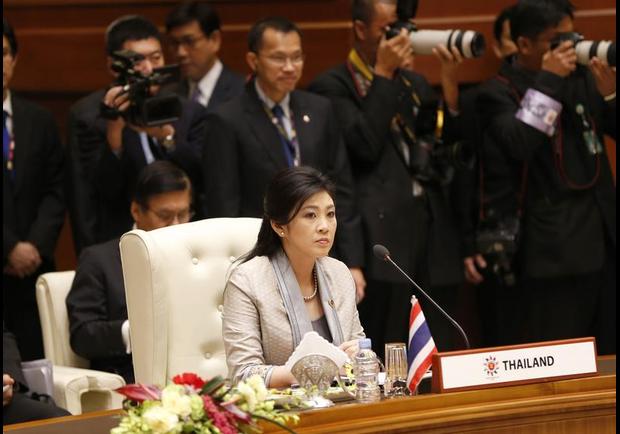
Yingluck Shinawatra, Thailand’s “caretaker Prime Minister” is currently awaiting a verdict on corruption charges pressed by the National Anti-Corruption Commission (NACC). The charges stem from the prime minister’s alleged failure to conduct proper oversight of a rice subsidy policy committee which the NACC argued bred corruption, hurt exports, and wasted public money. If Yingluck is found guilty and impeached, the resulting power vacuum may give her opponents the opportunity to attempt a power grab, deepening the divide between the opposition and supporters of the government.
In late March, Thailand’s constitutional court ruled the election held on February 2, 2014 unconstitutional because the vote was not conducted entirely on the same day, as is required by law. The delay was tied to anti-government protesters who blocked voters from reaching the polls during a campaign to push out Yingluck, who was then prime minister. Following the constitutional court’s decision, the Thai Election Commission (EC) set a date for another election, to be held on July 20 this year. In response, protest leaders announced plans to disrupt any elections held by the government, threatening a “final uprising”.
The protests began in the November preceding the February elections, largely in response to a proposed amnesty bill protesters believed would extend to Yingluck’s brother Thaksin Shinawatra, the former prime minister who fell from power in 2006 and fled the country to avoid corruption charges. The bill failed in the Senate, but suspicions that the prime minister was being controlled by her brother had already ignited a movement demanding that the government be replaced with a people’s council. This council, despite its name, would be unelected. Instead, Yingluck called the now-annulled February elections in an appeal for calm.
Whether the political deadlock will continue until the election depends heavily on the NACC’s decision. In the meantime, opposition protesters and government-supporting “redshirts” alike may do well to think about how the outcome will shape their action plans for the future of Thailand.




